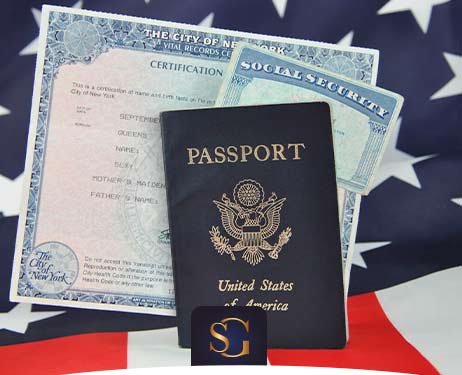Humanitarian Relief
DACA Renewals
In 2012, the Department of Homeland Security announced that certain people who came to the United States as children, and who meet their guidelines, may request deferred action for a period of two years, subject to renewal. They are also eligible for work authorization and advance parole.At this time, USCIS is not adjudicating initial DACA filings and certain delayed DACA renewals. If you have questions regarding where your DACA stands or have been arrested since your last DACA renewal, contact us for an evaluation of your case.
Advance Parole
Advance Parole is a travel document that allows foreign nationals to travel outside of the United States and return lawfully. These can be issued for humanitarian, employment, or educational purposes and can be issued for single or multiple trips depending on the underlying relief.Temporary Protected Status (“TPS”)
The Department of Homeland Security (“DHS”) may designate certain countries for Temporary Protected Status in situations where the conditions in a foreign country temporarily prevent the country’s nationals from returning safely. Once a noncitizen is granted TPS, he or she cannot be detained by DHS on the basis of his or her immigration status in the United States and he or she may be eligible for work and travel authorization. To be eligible, you must:-
Be a national of a country designated for TPS;
-
File during the open initial registration or re-registration period, or you meet the requirements for late initial filing during any extension of your country's TPS designation; and
-
Have been continuously residing in the United States since the date specified for your country.
You may not be eligible to apply for TPS or maintain your existing TPS if you fall under certain disqualifications.
U Visa
The U nonimmigrant status (commonly known as the “U Visa”) was created by Congress in 2000 and it is set aside for victims of certain crimes who have suffered mental or physical abuse and have cooperated with law enforcement or government officials in the investigation or prosecution of the criminal activity. This petition may qualify you for employment authorization and eventually allow you to apply for lawful permanent residence. Your immediate family members may also derive benefits.If you have been a victim of a crime in the United States, call us to schedule a consultation.
VAWA
The Violence Against Women Act of 1994 (“VAWA”), and its subsequent reauthorizations, allow noncitizens who have been abused by their U.S. citizen or lawful permanent resident relative the ability to petition for immigration status without the abuser’s knowledge, consent, or participation in the process.Spouses and children of U.S. citizens and lawful permanent residents, and parents of U.S. citizens who are 21 years of age or older, may file this petition and potentially seek legal permanent residence.
The filing of this petition may make you eligible for certain federal and state public benefits as well as work authorization while your petition is pending.
Military Parole in Place and Deferred Action
USCIS recognizes the important sacrifices made by U.S. service members, veterans, enlistees, and their families, and provides certain discretionary relief on a case-by-case basis.If you entered the United States without inspection and have a parent, spouse, or child in the military (whether active or honorably discharged) you may qualify for parole in place. This may be granted only to individuals who are present without admission and will be adjudicated in 1-year increments.
If you were admitted to the United States but are present beyond the authorized period of stay, you may be eligible for deferred action in 2-year increments. This discretionary relief does not give you lawful status but may allow you to apply for work authorization.






